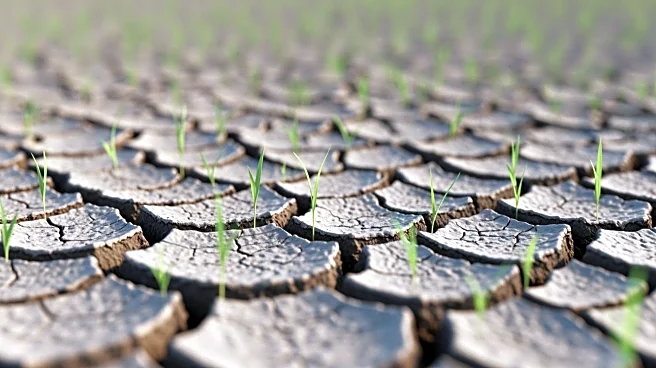What's Happening?
A recent report from the UN's Food and Agriculture Organisation (FAO) highlights the global issue of land degradation, which is significantly reducing soil fertility and agricultural productivity. The report states that 1.7 billion people live in areas
where yields are 10% lower due to human-induced land degradation. Factors contributing to this degradation include drought, deforestation, erosion, nutrient loss, and irrigation salinisation. High-income countries often offset these impacts with intensive agricultural inputs, while poorer regions suffer more significant declines. The report suggests that the food and beverage industry can adopt practices like crop rotation and cover cropping to preserve soil health and mitigate the effects of land degradation.
Why It's Important?
The FAO's report on land degradation underscores a critical challenge facing global agriculture, with implications for food security and economic stability. As land degradation reduces yields, it threatens the livelihoods of millions, particularly in low-income regions where agricultural productivity is vital for survival. The report calls for a reevaluation of agricultural practices to address human-induced degradation, emphasizing the need for sustainable methods that preserve soil health. For the food and beverage industry, adopting practices like crop rotation and cover cropping can enhance biodiversity and reduce erosion, contributing to long-term sustainability. Addressing land degradation is essential for ensuring food security and supporting global efforts to combat climate change.

















